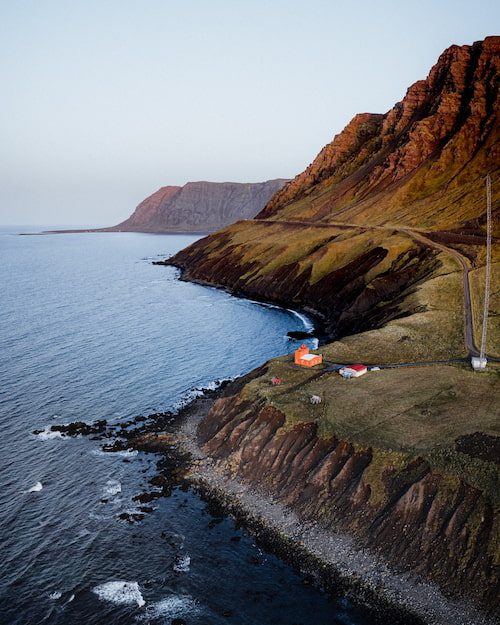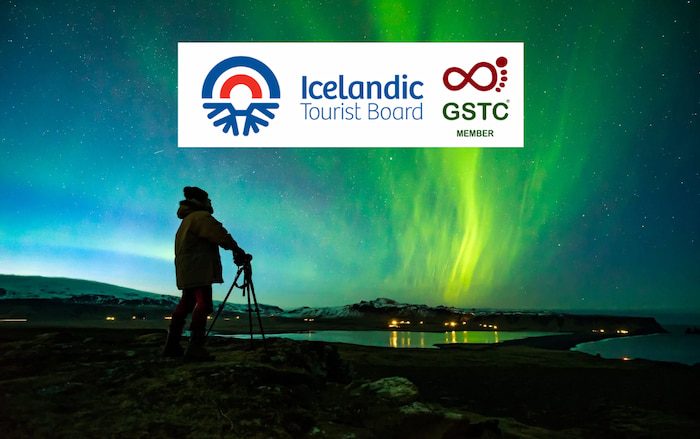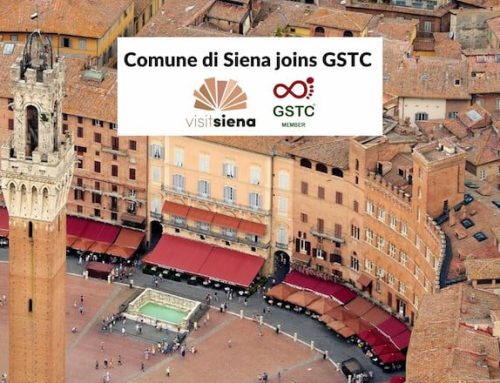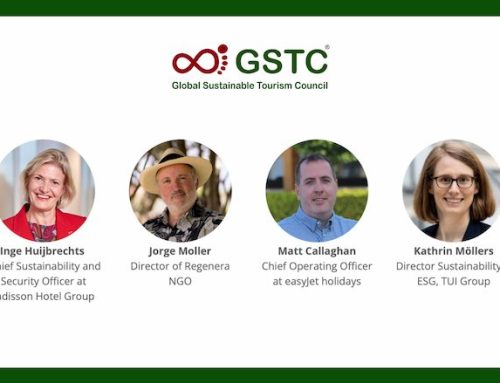Icelandic Tourist Board has joined as a member of the Global Sustainable Tourism Council (GSTC).
The Icelandic Tourist Board (ITB) is an independent authority under Iceland’s Ministry of Culture and Business Affairs. Its activities are regulated through the Act on the Icelandic Tourist Board and the Act on Package Travel and Linked Travel Arrangements.
Sustainability in Iceland

The Icelandic parliament has recently approved a new tourism policy extending to 2030, with its primary objective being to ensure a long-term vision of sustainability across all sectors, and to establish Icelandic tourism as renowned for its quality and unique experiences for both local and international visitors.
Focus areas of the tourism policy will be on achieving balance and integration across four key pillars: Economy, Society, Environment, and Visitors.
- Economic Focus: Prioritizing increased productivity, value creation, and competitiveness in tourism across the country. This includes advancements in technology, data utilization, innovation, product development, human resources, and education, alongside targeted strategies for valuable markets and demographic groups.
- Social Focus: Highlighting the positive impact of tourism on local communities and human resources, enhancing overall quality of life nationwide, and promoting sustainable and thriving communities. This also involves effective management and development of destinations to accommodate year-round travel across the country.
- Environmental Focus: Concentrating on reducing the carbon footprint of tourism and leading in energy transition through the use of ecological energy sources. Ensuring a balanced approach between conservation and development in infrastructure, while promoting tolerance and stress management at tourist destinations.
- Visitor Focus: Enhancing the guest experience to meet or exceed expectations through nature, culture, and diverse entertainment offerings. Emphasizing professionalism, quality, and safety standards that define Icelandic tourism.
In early 2015 the ITB, along with the Tourism Task Force, launched its development of Destination Management Plans (DMPs) with a holistic approach, taking into account the planning and coordination of the development and management of tourist flows in each region and strengthening the local tourism support frameworks. Further advancement took place in early 2021 when, on behalf of the Government, the ITB and the regional authorities committed to operating special Destination Management and Marketing Offices (DMMO) in each of the seven regions of Iceland.

Also, in cooperation with The Housing and Construction Authority, Sjálfsbjörg (The National Association of People with Physical Disabilities in Iceland), and ÖBÍ (The Icelandic Disability Alliance), ITB recently launched a new project called “Accessible Tourism” to improve accessibility in tourism for disabled people. The project is intended to inform and assist tourism operators in welcoming people with different needs in a safe and responsible way.
Furthermore, “The Tourist Site Protection Fund,” is in the custody of ITB. The role of the fund is to promote the development, maintenance, and protection of tourist attractions and tourist routes anywhere in Iceland, which are owned or managed by municipalities or privately owned and managed.
On the official website of “Visit Iceland,” tourists can take the pledge to agree to respect Iceland’s nature and to travel responsibly during their visit: https://pledge.visiticeland.com/ as well as calculate and compensate for their carbon footprint.
“Sustainability and quality have long been priorities for the Icelandic Tourist Board. These aspects were first formally addressed in our official tourism policy approved in 1996. As part of this initiative, special funding was allocated for developing tourist destinations and introducing a star rating system for accommodations. In 2012, we launched Vakinn, a quality and environmental certification program for tourism in Iceland. With the announcement of our new tourism strategy for 2030, which emphasizes sustainability as a key element, we recognize the importance of aligning our efforts with international standards. Therefore, we have decided to join the Global Sustainable Tourism Council (GSTC) to both learn from and contribute to the global sustainable tourism community. By doing so, we aim to enhance our practices and share our experiences to promote sustainable tourism worldwide,” said Arnar Már Ólafsson, General Director of the Icelandic Tourist Board.
GSTC Welcomes the Icelandic Tourist Board
“We are pleased that the Icelandic Tourist Board has joined our global network as a GSTC Member and are committed to promoting sustainable tourism practices. We look forward to working with them, jointly steering towards this vital and shared goal, » said Randy Durband, GSTC CEO.
About the Icelandic Tourist Board
The Icelandic Tourist Board is an independent authority under the Ministry of Culture and Business Affairs. Its activities are regulated through the Act on the Icelandic Tourist Board and the Act on Package Travel and Linked Travel Arrangements.
The Icelandic Tourist Board monitors and promotes the development of tourism as an important and sustainable pillar of the Icelandic economy, considering the carrying capacity of Icelandic nature and society. It also facilitates coordination, analyses, and research in the tourism sector in accordance with government policy.
More information here: https://www.maelabordferdathjonustunnar.is/en
About the GSTC
The Global Sustainable Tourism Council® (GSTC®) establishes and manages global sustainable standards, known as the GSTC Criteria. There are three sets: Destination Criteria for public policy-makers and destination managers, Industry Criteria for hotels and tour operators, and MICE Criteria for Venues, Event Organizers, and Events & Exhibitions. These are the guiding principles and minimum requirements that any tourism business or destination should aspire to reach in order to protect and sustain the world’s natural and cultural resources while ensuring tourism meets its potential as a tool for conservation and poverty alleviation.
The GSTC Criteria form the foundation for GSTC’s assurance role for Certification Bodies that certify hotels/accommodations, tour operators, and destinations as having sustainable policies and practices in place. GSTC does not directly certify any products or services, but provides accreditation to those that do. The GSTC is an independent and neutral USA-registered 501(c)3 non-profit organization that represents a diverse and global membership, including national and provincial governments, leading travel companies, hotels, tour operators, NGOs, individuals and communities – all striving to achieve best practices in sustainable tourism.
Information for media and the press: www.gstcouncil.org/about/for-the-press/
Statements expressed in this announcement are presented for informational purposes only and should not be taken as an endorsement or recommendation by GSTC, unless clearly stated.





